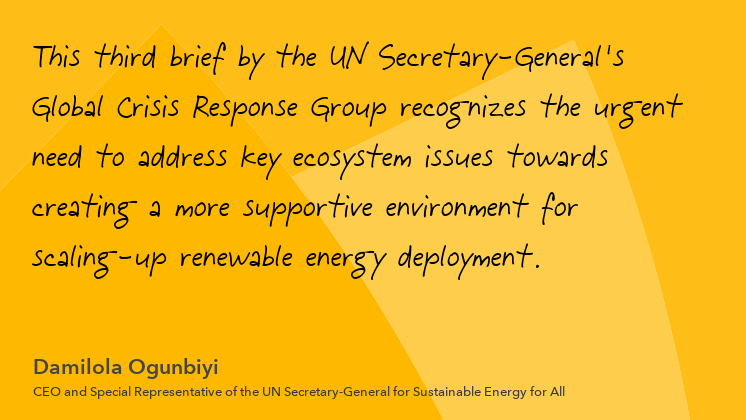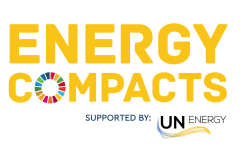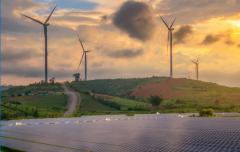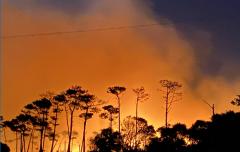New UN brief calls for urgent energy-related measures for long-term sustainable development
Rising energy prices are severely impacting our world, pricing out many developing countries and setting back decades worth of progress. As with most global challenges, the most vulnerable populations are hit the hardest. The continuing crisis has significantly impacted clean energy development as well as progress being made on energy access and the clean energy transition. We are now in the middle of a long and uncertain period of energy politics, with serious implications for energy choices – both today and in the future.
The 3rd Brief of the Global Crisis Response Group, launched by UN Secretary General today, highlights the severity of the current challenges in the energy sector and makes short- and medium-term recommendations to respond and systemically address current and chronic challenges.
As governments continue to face immense pressure from the once-in-a-generation cost of living crisis, the United Nations is calling for energy policy measures that link the need for urgency and long-term sustainable development.
“This third brief lays out steps to address the global energy crisis. It recognizes the urgent need to address key ecosystem issues towards creating a more supportive environment for scaling-up renewable energy deployment, including the challenge posed to progress on SDG7 by the low disbursement of committed development finance,” says Damilola Ogunbiyi, CEO and Special Representative of the UN Secretary-General for Sustainable Energy for All and Co-Chair of UN-Energy, as well as the co-lead of the energy workstream of the UN Global Crisis Response Group.





